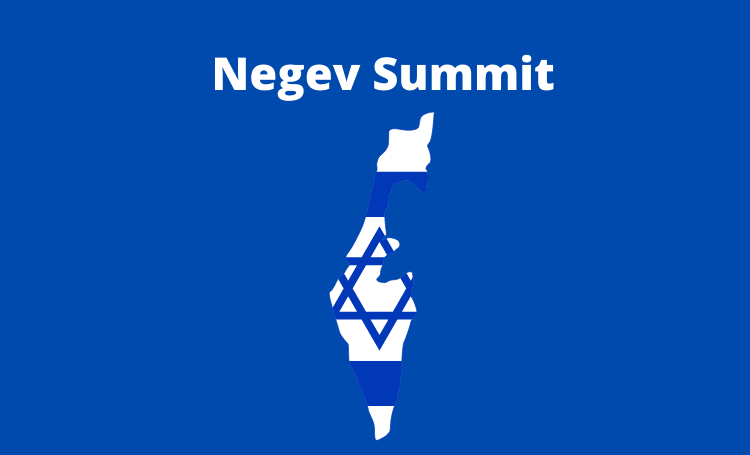Anat Kurz
INSS Special Publication, Apr. 3, 2022
“Even the murderous attack that occurred in Israel, in Hadera, on the eve of the summit did not ruin the summit’s important symbolism, which in part emphasized the official descent of the Palestinian issue from the regional stage.”
The foreign ministers of the United Arab Emirates (UAE), Bahrain, Morocco, Egypt, the United States, and Israel convened for the Negev Summit, the first of its kind hosted by Israel, following the summit held earlier in March 2022 in Sharm el-Sheikh, which was attended by Prime Minister Naftali Bennett, President Abdel Fattah el-Sisi and Crown Prince Mohamed bin Zayed.
The summit took place against the backdrop of Russia’s military invasion of Ukraine, which has aroused security fears in many countries and has led to rising oil and food prices, all occurring as the great powers and Iran are on the verge of reaching a nuclear agreement. The timing of the summit reflects the view of the participating countries of the shared threats that they face, especially those from Iran, which are increasing by the apparent American readiness to remove the restrictions imposed on Iran and release resources that will serve Tehran in continuing its subversive and destabilizing activity in the region. Another source of concern is the prevailing perception of American disengagement from the region and its consequences. Although the purpose of the summit was not intentionally defined, its essence was to create a basis for jointly navigating the new global and regional reality, which includes:
- Cooperating against Iran – in a kind of Middle East security alliance (MESA). Just as the West united against Russia while NATO alliance consolidated its ranks, the pragmatic Arabic countries are uniting with Israel against Iran.
- Coordinating policies in face of a new global situation, characterized by increasing competition between the great powers, while at this stage the main arena is in Europe. This development is strengthened by the US departure from the Middle East and leaves a vacuum in which Iran can increase its intervention and influence throughout the region. Consequently, it is necessary to move to close the vacuum, to the point of enlisting in rehabilitating Syria, as was hinted during President Assad’s recent visit to the UAE.
To view the original article, click here


